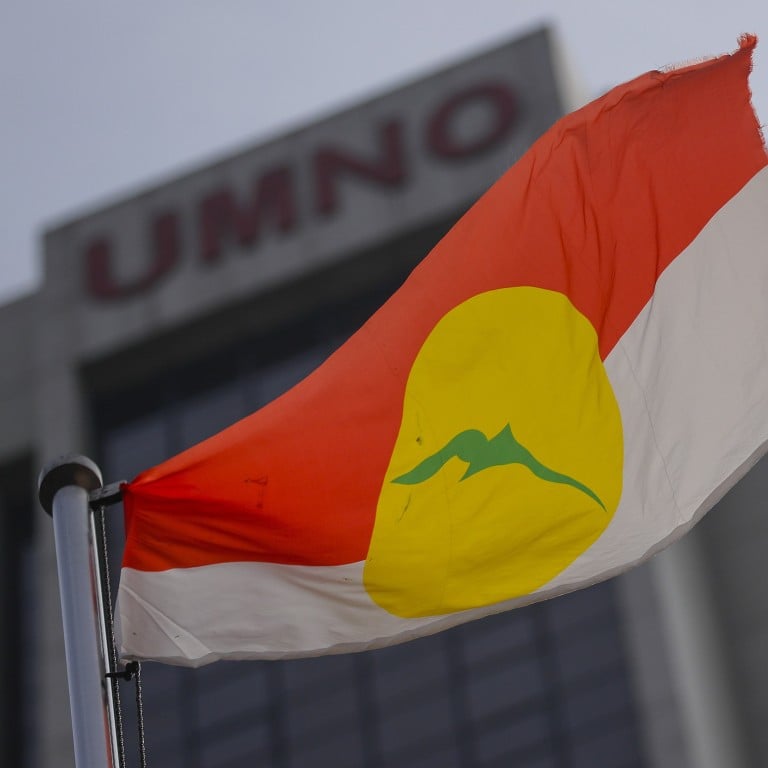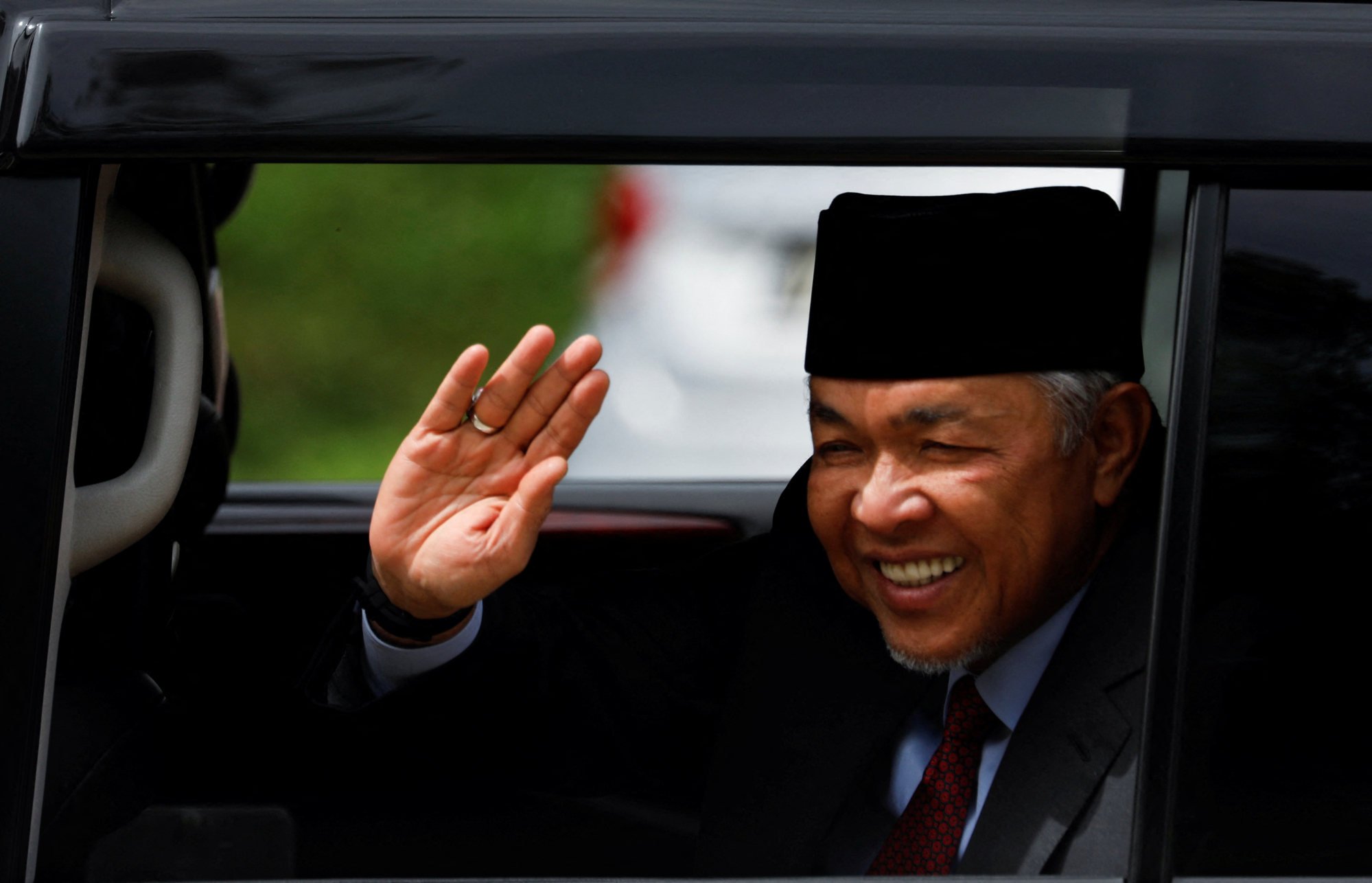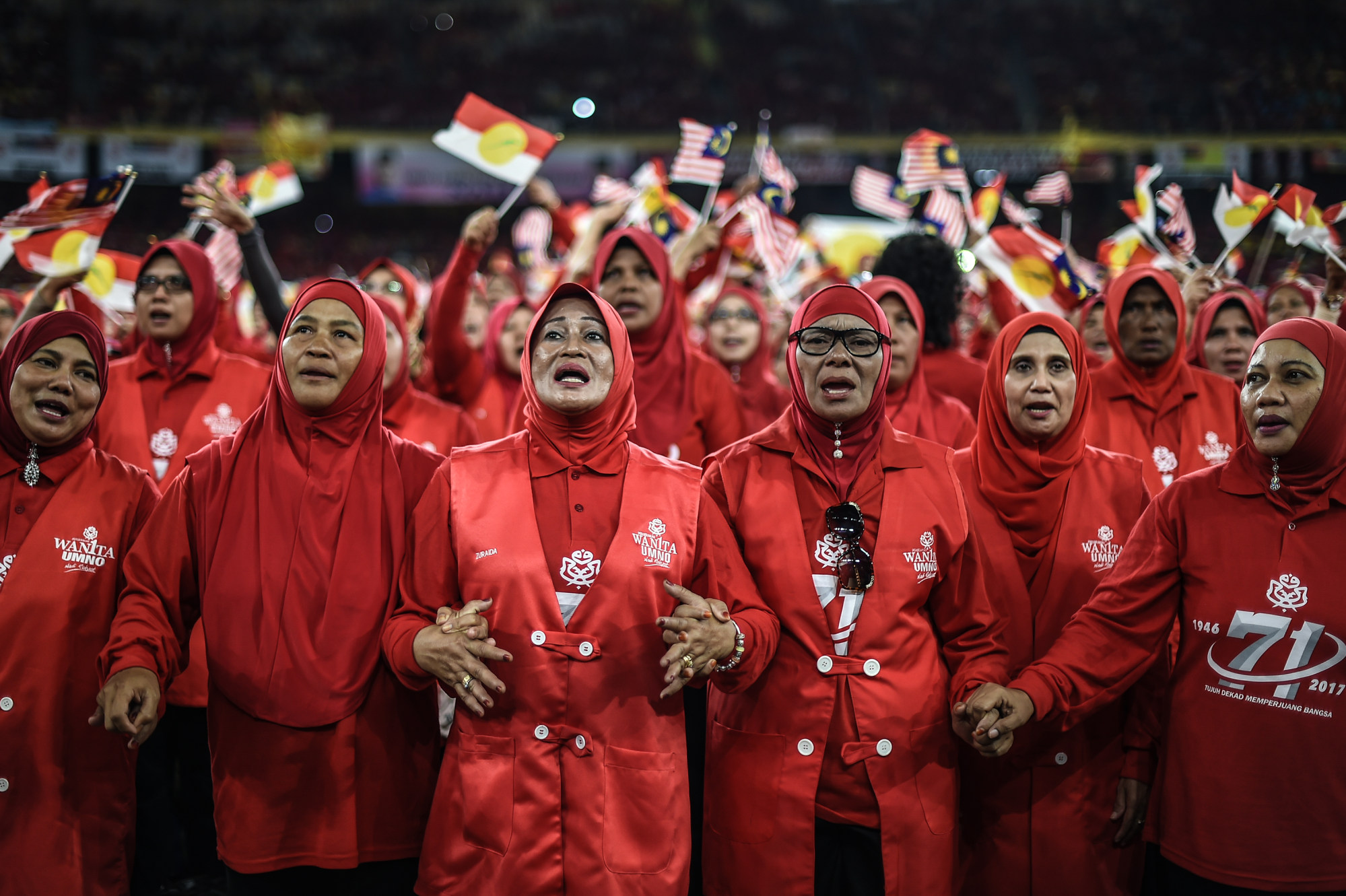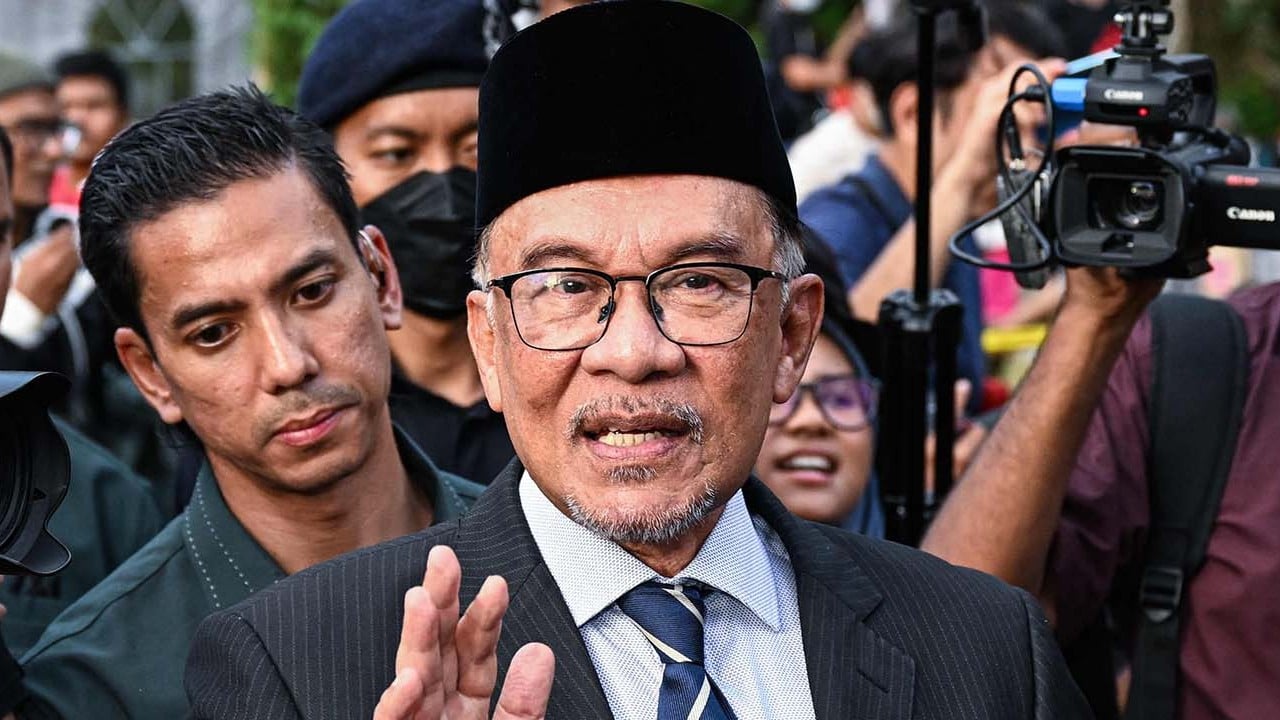
Does Malaysia’s Umno have to ‘outdo’ rival PAS to regain the Malay vote?
- Malaysia’s grand old party is refreshing its ranks after Islamist PAS swept the November election in a ‘green wave’ to land a crushing defeat
- Umno now faces a dilemma: maintain a centrist position or pivot to conservatism and race-baiting to regain influence among Malay-Muslims
The show of strength appears to have worked and, according to observers and party insiders, Ahmad Zahid’s position is safe – for now.

Delegates at the party’s annual meeting in January voted to leave the presidency and deputy presidency uncontested in elections that run from February to mid-March.
The removal of the president’s opponents means there is no one left inside the party to go against the decision.
“He excised those potential challengers,” said Oh Ei Sun, a senior fellow with the Singapore Institute of International Affairs. “(And) he still enjoys widespread grassroots support within the party.”
“Historically the grassroots have always been loyal to the party’s cause and its elected leaders. The recent purge will not cause the party to collapse,” said Adib Zalkapli, a Malaysia director with political risk consultancy BowerGroupAsia.
Can shedding hardline tag help Malaysia’s Umno recover from existential crisis?
But at best, it is a small reprieve for Ahmad Zahid and his party, who are faced with the reality that they are no longer the party of choice for the country’s majority Malay-Muslim community.
What happened instead was a near wipeout for Umno. It finished with just 26 of the 222 seats in parliament, a far cry from the supermajorities it had enjoyed over most of the six decades that it retained power.
And with six state elections expected to be held later this year, Ahmad Zahid is left with very little time to convince lost supporters to return.
“The biggest concern here is PAS. Nevermind the [coming] state elections, we’re looking at the future and the trend [in their favour] is clear,” an Umno leader, who asked not to be named, told This Week in Asia.
Religious vote
Ahead of the November polls last year, a few political observers had predicted the Malay vote – which accounts for well over half of Malaysia’s 32 million-strong population – would swing sharply away from Umno. But nobody thought the grand old party would be decimated.
And in many seats that PAS and Bersatu lost, the margin by which they did was too close for comfort for Umno and their new allies in Anwar’s Pakatan Harapan (PH) coalition.
The PAS-Bersatu alliance, dubbed Perikatan Nasional (PN), finished the race with 74 seats in parliament, the second largest coalition behind PH’s tally of 82.
More importantly, PN made significant inroads with Malay voters despite being formalised just two years before the election, indicating this could be just the start for the alliance.

Analyst Oh Ei Sun said the race was on between Malay-based parties such as Umno, PAS and Bersatu to flex their conservative credentials to win over a demographic that was increasingly leaning on religion to guide their world view.
“So if Ahmad Zahid and Umno were to regain their Malay-Muslim support base, they would have to outdo especially PAS in this regard,” Oh said.
This leaves Umno at a crossroads: revert to their traditional centrist position that helped form a binding coalition to keep power, or continue to pivot to conservatism and race-baiting to lure back Malay-Muslims?
“The main thing is still in comparison to PAS, [Umno] do not advocate enough [for] the infusion of religious elements and expressions into every aspect of sociopolitical and socioeconomic intercourse,” Oh said. “And there is a growing demand for such infusion.”

Incumbency matters
But observers say it is too soon to write off Malaysia’s oldest party, whose founders led negotiations to secure the country’s independence in 1957.
It retains the best internal structure among Malaysia’s political parties, BowerGroupAsia’s Adib said, and the purge of dissidents leaves no credible challenge to the party president.
“Umno holds strategic positions in the government and their rivals Bersatu and PAS are in the opposition – it’s an excellent position to be in for a party with just 26 seats in parliament,” he said.
Ahmad Zahid’s decision to back Prime Minister Anwar’s bid to form government has brought dividends to the party – the Umno president is now a deputy prime minister and several of the party’s senior leaders were made ministers with key portfolios.
Their access to government machinery grants them powerful leverage to reach out to their target demographic and convince them that their interests are in good hands.
“Ahmad Zahid and Umno need this government to succeed and deliver. And they hold important positions in the government so they have the power of incumbency to fight the ‘green wave’,” Adib said.


